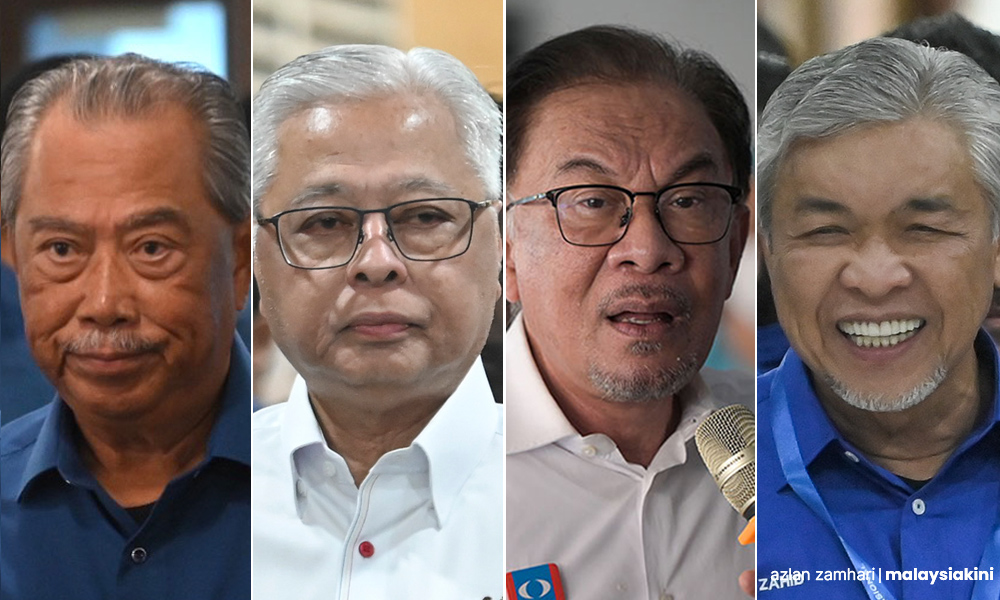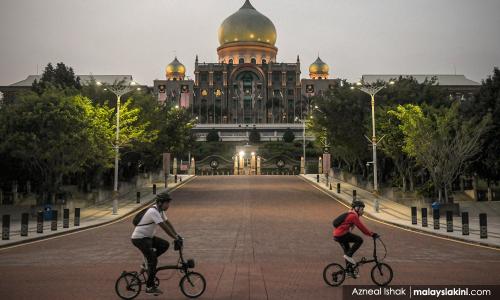LETTER | Minority government could be the way out of political deadlock
LETTER | Today marks the fourth day as Malaysians wait for the appointment of the 10th prime minister after the 15th general election.
As much as Malaysians have waited, the audience between the Yang di-Pertuan Agong and Pakatan Harapan (Harapan) chairperson Anwar Ibrahim and his Perikatan Nasional (PN) counterpart Muhyiddin Yassin yielded no results, as His Majesty saw that both of them don’t possess the simple majority needed to form the federal government.
Meanwhile, ringgit and Bursa Malaysia’s stock values continue to plunge, as investors lose confidence over the seemingly endless political instability despite an election was finally held, returning the mandate to the people.
An anticipated global economic recession is coming as we approach 2023, while the Budget 2023, which was halted after former prime minister Ismail Sabri called for GE15, still remains not tabled and passed.
The budget is certainly essential for Malaysia to guide the government in encountering the economic crisis.
Forming a new federal government fast is imperative now amid all the upcoming crises that the country may face. However, all parties seem to be obsessed about the 112 simple majority needed to form the federal government, ignoring the severity of the upcoming crises.

Barisan Nasional (BN), which lost the election badly, has ruled out supporting Harapan nor PN, maintaining that it wants to be the opposition.
PN and Harapan have earlier claimed that they will never work with each other despite advised by the Agong to do so, making forming a federal government with a strong 155 seats almost impossible.
The problems with the post-election coalitions practised in Malaysia are all exposed under the sunlight following the hung Parliament. As polarised as the people and politicians’ sentiment towards each party, a coalition government of either two of BN, Harapan and PN won’t yield stability.
Not only the people on the ground will oppose it, but the leaders on top themselves will fall into endless conflicts and infightings, planting the seeds of another possible “Sheraton Move”.
I personally also won’t support a government formed by the collaboration of either two of BN, Harapan and PN, because I would not have voted for either of them if I know this will be the government structure after they win.
BN supporters would not want to see Harapan and PN joining the government, and so do Harapan and PN supporters. This is simply a betrayal of the people’s mandate as the core value of democracy.
In European democracies such as the United Kingdom (UK), cases of a minority government had happened before.
Federal Constitution holds the key
Putting it into the context of Malaysia, Harapan, the largest bloc with the most parliamentary seats (82), would be made government, while PN, BN, and other parties which hold lesser seats each than Harapan would become the opposition.
This is to ensure that the mandate of the majority is being respected.
And with the current scenario, this seems like the only way to establish a new government, unless some drastic changes in stance happen on the contesting parties and coalitions in terms of collaboration, which is unlikely to me, at least for these few weeks.
Some may say that it is illegal in Malaysia to form a minority government which does not hold the simple majority in Dewan Rakyat.
However, Article 43(2)(a) of the Federal Constitution prescribed that the Agong can appoint any parliamentarian, who in his judgement, commands the simple majority support. This means that the appointed prime minister does not necessarily need to hold simple majority support in reality.
The Agong holds the discretion and absolute power in this appointment. After the 10th prime minister is appointed and a new government is formed, a parliament session can be convened, and that’s the time where MPs work on constitutional amendment or related law drafting to allow the formation of a minority government if hung Parliament occurs after general elections.
The monarch will meet BN leaders later to listen to whom they support. If BN maintained that they want to remain as opposition, then perhaps the Agong should really consider the proposal of a minority government to allow key processes needed by the country, especially the Budget 2023, to continue.
I believe the Agong would be able to make a good decision for the people, given his wisdom.
The views expressed here are those of the author/contributor and do not necessarily represent the views of Malaysiakini.
RM12.50 / month
- Unlimited access to award-winning journalism
- Comment and share your opinions on all our articles
- Gift interesting stories to your friends
- Tax deductable
